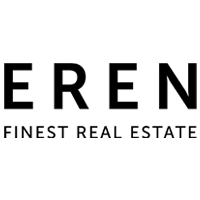Property taxation in Switzerland: key principles, regulatory developments and best practice
Reading time — 8 minutes

Are you thinking of becoming a homeowner in Switzerland? Before you embark on your purchase project, it’s important to know that Swiss homeowners are subject to a number of taxes on the property they own. In return, they can benefit from various tax advantages, including the deductibility of various costs. But taxation is a complex matter in the Swiss Confederation, given the variety of taxes, the diversity of practices from one canton to another, and regulatory developments. In this guide to property taxation in Switzerland, FGP Swiss & Alps presents the main principles, recent developments and good tax practice.
Swiss property taxation applicable to property held
In Switzerland, property owners are subject to a variety of taxes at every stage of owning a property, from purchase to resale. This applies to both primary and secondary residences. In this part of our guide to property taxation in Switzerland, we take a look at these taxes relating to home ownership.
At the time of purchase: transfer duties (included in the notary’s fees)
When buying a property, the new owner has to pay the notary’s fees. These are essentially made up of a tax: transfer duties, also known as “registration duties” or “purchase tax”, depending on the canton. This cantonal or municipal contribution, which applies at the time of transfer of ownership, is used to cover the administrative costs of the transaction. It is not unique to Swiss property taxation: such duties exist in most countries, including France.
Transfer duties vary between 0.1% and 3.3% of the sale price, depending on the canton. For example, it is 1.5% in the canton of Valais, 3% in the cantons of Fribourg and Geneva, and 3.3% in the cantons of Neuchâtel and Vaud.
While you own the property: annual tax
Every year, for as long as the property is owned, the owner has to pay three types of tax: property tax and tax on rental value are compulsory in all cases, while tax on property wealth applies according to the amount of the taxpayer’s assets. The special feature of Swiss property taxation is that the basis for calculating each tax may vary from canton to canton.
Property tax
Property tax (also known as “contribution immobilière”) is levied on any property entered in the Swiss Land Register. Owners pay this tax each year to the canton (or town) where their property is located, in return for the use of part of the municipality’s territory. Once again, this is not a peculiarity of Swiss property taxation.
This tax is calculated on the basis of the gross value of the property at the end of each tax period: it is due for the entire calendar year. The rate of tax varies from canton to canton. For example, for an individual, property tax amounts to 0.1% of the estimated taxable value in the canton of Geneva (cantonal tax) and 0.15% in the canton of Vaud (municipal tax). In some cantons, such as Neuchâtel, this tax simply does not exist. [Note that in official texts, the property tax rate is expressed in “per thousand” rather than “per cent”].
Rental value
Rental value is a special feature of Swiss property taxation. It represents notional income from owner-occupied residential property. In practice, Swiss property owners pay tax on the theoretical income they could earn from letting their property. In this way, the amount of the rental value is added to income tax.
This value is calculated by taking into account a number of criteria, such as the characteristics of the property (surface area, number of rooms, etc.), its location and the rents charged in the locality. Depending on the canton, the value varies between 60% and 70% of the theoretical rental income, but can be neither lower nor higher than this range.
In return for the tax on rental value, homeowners are able to deduct mortgage interest, maintenance costs and renovation or repair costs from their taxable income. However, the plan to abolish rental value tax also provides for the disappearance of some of these deductions(see below).
Property wealth tax
When it comes to property taxation in Switzerland, the tax value of the home is added to the assets used to calculate wealth tax. This tax value generally corresponds to the purchase price: in principle, an allowance allows it to be reduced each year. In the canton of Geneva, for example, the value to be entered on the tax return is reduced by 4% each year, until it reaches a minimum of 60% of the purchase price after 10 years. However, the method of calculation can vary greatly from one canton to another: some authorities rely on the valuation carried out by the Land Registry, others on that of the Land Registry, and still others have an on-site valuation carried out.
Wealth tax applies to the taxpayer’s net wealth. This means that mortgage debt and interest can be deducted. In other words, the higher the debt, the lower the tax.
Finally, each canton determines the threshold at which an owner is subject to tax: this is CHF 20,000 in Fribourg, but CHF 108,601 in Geneva.
On resale: tax on property gains
Swiss property tax provides for taxation of capital gains on resale, with no exemption possible (but with a deferral option).
Tax on property gains applies to the resale of a property when the owner makes a profit, i.e. when the difference between the purchase price and the sale price is in his favour. It is the seller who pays this tax, which is levied by the cantons and, more rarely, by the municipalities.
However, a certain number of expenses can be deducted from taxable profits:
- Costs associated with the sale, such as brokerage commission or compensation for early termination of the mortgage.
- Costs associated with the purchase, such as transfer taxes, notary’s fees, or investments made in the property to increase its value. These are known as “value-enhancing works” or “impenses”. Examples include the addition of a new feature to a building (extension, attic space, veranda, etc.), the complete conversion of a home (with a new layout for the interior), or the total renovation of a building.
Unsurprisingly, the way in which tax on property gains is calculated varies from canton to canton: the tax scale can be proportional (each gain is taxed at the same rate) or progressive (the rate increases in proportion to the gain made). In both cases, the tax is degressive according to the length of ownership. In the canton of Vaud, for example, the rate drops from 30% for 1 year of ownership to a minimum of 7% after 24 years. This tax was introduced to combat speculation: the faster a property is resold, the higher the rate of property tax in Switzerland.
In some cases, tax can be deferred, for example when the proceeds of the sale are reinvested in the purchase of a new principal residence. The transaction must take place within a maximum of 2 to 4 years, depending on the canton. The deferral concerns the portion of the profit that has been reinvested.
Tax allowances available to property owners
Property taxation in Switzerland operates on a principle of quid pro quo: while there are many taxes, there are also various deduction mechanisms that enable property owners to reduce their tax burden. This is the subject of this part of the guide.
Deductibility of mortgage interest
In the Swiss Confederation, mortgage interest is tax-deductible. This is one of the reasons why Swiss property taxation is so advantageous. But it is also a mechanism that encourages household indebtedness. In fact, the more debt homeowners have, the more they can reduce their tax bill by deducting the interest on their mortgage.
This explains the attractiveness of the indirect amortisation system: the fact that the mortgage is not amortised directly, but that the corresponding sums are invested in a personal pension plan (third pillar), so that the debt is repaid in full at maturity. This allows you to deduct as much passive interest as possible from your taxable income for as long as possible. Conversely, in the case of direct repayment, the amount of interest declines from year to year, so the tax deduction is smaller each time.
Please note: the plan to abolish the rental value is accompanied by a revision of the maximum interest rate that can be deducted from tax.
Deductibility of maintenance costs
Under Swiss property tax rules, the cost of maintaining a property is deductible from taxable income. These costs correspond to expenditure incurred with the aim of maintaining the value of the property, not increasing it: renovation work, routine repairs, day-to-day maintenance, etc. They are deductible in the year in which the expenditure is incurred.
Please note: the plan to abolish the rental value system means that maintenance costs can no longer be deducted from tax (except in the specific case of the restoration of historic monuments).
Deductibility of other expenses
Other costs can be deducted by homeowners from their taxable income:
- Building operating costs (including insurance premiums).
- Property administration costs.
- Penalties for early repayment of the mortgage – in certain cantons and under certain conditions (depending on the nature of the event leading to the sale). This is the case in the canton of Vaud.
- Work aimed at saving energy – even though it is considered to be “value-added work”. This includes installing solar panels, changing windows, renovating thermal insulation from the outside, or replacing a heating system with a more economical solution. The aim of this Swiss property tax measure is to encourage property owners to improve the energy performance of their homes. But beware: only investments not covered by public subsidies are deductible.
The evolution of Swiss tax regulations: an example of rental value
At the end of this overview, it’s important to remember that Swiss property taxation changes regularly, and that it’s essential to keep abreast of legislative changes that could have an impact on property owners.
A good example is the plan to abolish the rental value tax. Adopted by a joint decision of the Swiss National Council and Council of States at the end of 2023, this revision should be implemented in 2024: it provides for a total abolition of this tax for primary and secondary residences. In return, maintenance costs will no longer be deductible… and the deductibility of interest liabilities will be reduced.
Good tax practice when buying property in Switzerland
As you will have realised, Swiss property taxation is a complex subject. There are several different types of taxation, with different bases of calculation and application rules in different cantons. As a result, future property owners need to have a good understanding of the specific tax situation in each canton, and to keep abreast of changes in the legal framework. Here are a few best practices to adopt:
- Find out about tax practices in each canton, as the nature of taxes and tax rates can vary greatly. This will enable you toestimate the tax burden associated with buying and holding a property – which can become a criterion for choosing between several cantons.
- Make the right choice when it comes to mortgage amortisation, so that you can deduct as much passive interest as possible from your tax bill.
- Plan maintenance and repair work on your newly-acquired home so that you can deduct the cost from tax, as well as from future capital gains (if the property increases in value).
- Seek the advice of an expert in Swiss property taxation: someone who can advise you on your specific situation.
Would you like to know more about Swiss property taxation? Don’t hesitate to ask your real estate broker for help.


